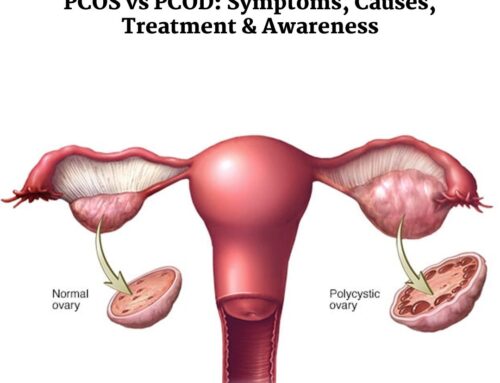Progesterone Hormone Benefits for Women’s Health
When we discuss women’s health, many overlook the progesterone hormone benefits despite its crucial role. Progesterone supports fertility, prepares the uterus for pregnancy, balances menstrual cycles, and influences mood and sleep quality. Therefore, this article explores how progesterone works, symptoms of imbalance, and effective ways to maintain healthy hormone levels.
What is Progesterone and How Does It Work in the Body?
The ovaries mainly produce progesterone after ovulation. Additionally, the adrenal glands and placenta produce smaller amounts during pregnancy.
Although progesterone works alongside estrogen, it performs unique functions such as preparing the uterine lining for pregnancy, supporting early fetal development, and calming the nervous system. These functions represent key progesterone hormone benefits.
How Progesterone Hormone Benefits Fertility and Pregnancy
One of the most important benefits is that progesterone prepares the uterus for implantation of a fertilized egg. Moreover, it maintains the uterine lining during early pregnancy and helps prevent premature contractions during the first trimester.
Signs of Low Progesterone Hormone and Related Symptoms
Progesterone balances estrogen, thereby preventing excessive growth of the uterine lining. When pregnancy doesn’t occur, progesterone triggers menstruation, helping maintain reproductive health.
The Influence of Progesterone on Mood and Sleep Quality
Besides reproduction, progesterone calms the brain, reduces anxiety, and promotes healthy sleep by interacting with GABA receptors. As a result, low progesterone often causes mood swings and insomnia.
Additional Health Benefits: Bone Strength and Heart Health
Progesterone works with estrogen to protect bone density and supports cardiovascular function by regulating blood vessel tone. In fact, this makes it important for overall health beyond reproduction.
Signs and Symptoms of Progesterone Imbalance
Low progesterone can cause irregular periods, difficulty conceiving, mood swings, anxiety, insomnia, and premenstrual spotting. Conversely, high progesterone might cause breast tenderness, bloating, water retention, and fatigue.
Common Causes of Imbalance
Stress, Polycystic Ovary Syndrome (PCOS), perimenopause, menopause, and certain medications often disrupt progesterone production and balance.
Understanding Progesterone Hormone Balance and Its Importance
Lifestyle Changes to Promote Hormonal Health
You can manage stress with yoga, meditation, or deep breathing exercises to support hormone production. Moreover, eating a balanced diet rich in whole grains, vegetables, and healthy fats helps maintain balance. Additionally, getting quality sleep is essential for hormone regulation.
Nutritional Support for Progesterone Production
Include foods rich in Vitamin B6, Magnesium, and Zinc in your diet. For example, seeds like pumpkin, flax, and sunflower can help promote progesterone production.
When to Seek Medical Support
If you experience significant hormone imbalances or fertility issues, consult your doctor. They may prescribe supplements like dydrogesterone or micronised progesterone under medical supervision.
Progesterone’s Critical Role During Pregnancy
Progesterone supports embryo implantation, prevents early uterine contractions, and nourishes the uterine environment for fetal growth. Therefore, doctors often recommend progesterone support during the first trimester if levels are low.
Conclusion: Embracing Balanced Progesterone for Better Health
Progesterone affects fertility, menstrual regularity, emotional wellbeing, bone strength, and heart health. By supporting hormone balance through lifestyle, nutrition, and medical care when needed, you can promote overall wellness.
Frequently Asked Questions About Progesterone Hormone Benefits
What is progesterone and why is it important?
Progesterone prepares the uterus for pregnancy, regulates menstrual cycles, and supports mood, sleep, bone, and heart health.
When do progesterone levels peak?
Progesterone levels peak after ovulation during the luteal phase and drop if pregnancy does not occur.
What happens if progesterone levels are low?
Low progesterone causes irregular periods, infertility, mood swings, and increased miscarriage risk.
Can diet improve progesterone levels?
Yes, foods rich in Vitamin B6, Magnesium, Zinc, and seeds like pumpkin and flax support progesterone production.
How do doctors measure progesterone?
Doctors measure progesterone through a blood test, usually around day 21 of the menstrual cycle.
What’s the difference between dydrogesterone and micronised progesterone?
Dydrogesterone is a synthetic hormone used often in pregnancy support, while micronised progesterone is a natural form available in various medical preparations.
Can stress affect progesterone levels?
Yes, stress increases cortisol, which can reduce progesterone production.
Are progesterone levels linked to mood and sleep?
Yes, progesterone calms the brain, reducing anxiety and supporting restful sleep.





